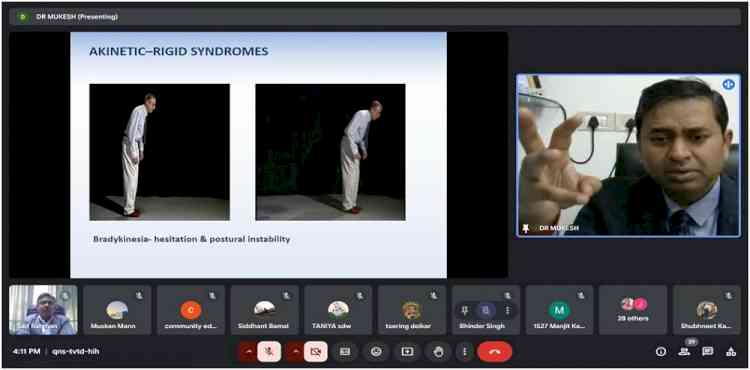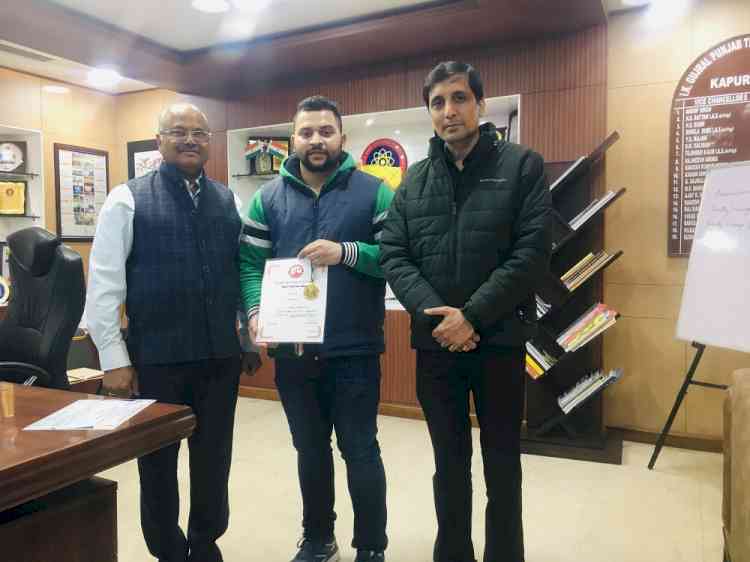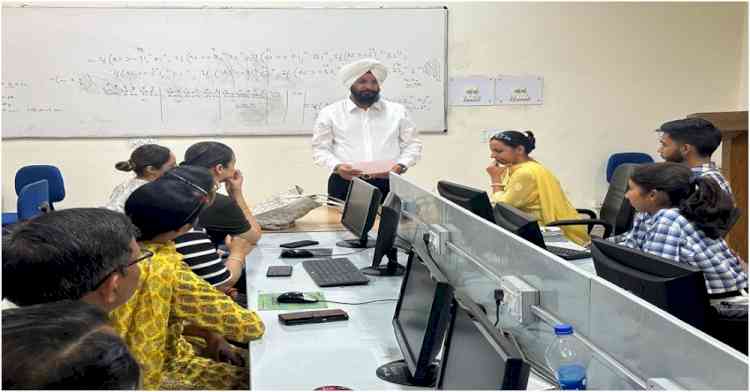Webinar on Risk Signals, Prevention and Management Strategies of NeuroCognitive Disorders (Parkinson’s Disease)
Webinar organised on Risk Signals, Prevention and Management Strategies of NeuroCognitive Disorders (Parkinson’s Disease) in Panjab University

Chandigarh, February 6, 2025: The Department of Community Education and Disability Studies, Panjab University organised a webinar on the theme “Risk Signals, Prevention and Management Strategies of NeuroCognitive Disorders (Parkinson’s Disease)” on Wednesday.
Neurologist at Max Super Speciality Hospital, Saket, New Delhi Dr.Mukesh Kumar delivered the webinar. He started his lecture by focusing on Idiopathic Parkinson's Disease (IPD) which is the most common form of Parkinson's disease and a progressive neurological disorder that affects movement and has no cure. He informed that Parkinson's Disease is the second most common neurodegenerative condition next to Alzheimer's Disease. He briefed the participants about the types of Parkinson's Disease which is Good Parkinson's and Bad Parkinson's along with the symptoms associated with them such as Stooping, slow to initiate walking, Shortened stride, Rapid Small Steps (Shuffling), Tendency to Run (Festinating), Reduced Arm Swing and Impaired Balance on turning.
Dr. Kumar also revealed the fact that people having Parkinson's Disease has more chances to get other disorders as well like Micrographia, Hypophonia, Hypomania, Shuffling Gait/Festination, Drooling, Dysphagia, Autonomic dysfunction, Depression and Dementia.
A special slide was presented on what should be the diet of those who are going through this neurological disorder and it was found that Levodopa absorption can be impaired by ingestion of amino acids, especially in patients with motor fluctuations, which can potentially reduce its effectiveness. A high fiber diet (or fiber supplementation) as well as adequate fluid intake is advised as it can minimize the constipation which is commonly seen in the Parkinsons patient. He also emphasised on the criteria of Patient Selection for DBS i.e. Deep Brain Stimulation and as per him the ideal candidate would have medically refractory motor fluctuations or tremor, stable medical conditions, and normal cognitive function otherwise there could be potential complications including, stroke, infection, and failure of the implanted stimulator.
Earlier, the Chairperson of the Department Dr. Md Saifur Rahman, delivered the welcome note on incidence and prevalence of the neuro-developmental disabilities.
Faculty members, research scholars and students of the Department participated in the webinar.


 City Air News
City Air News 








